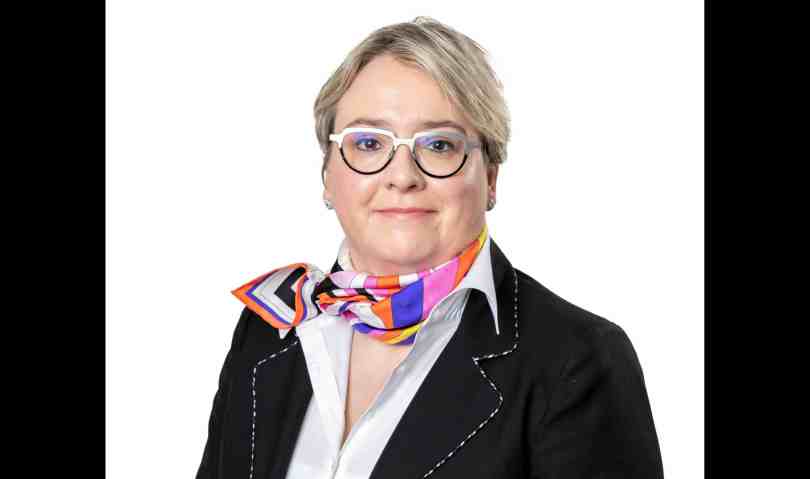Shareholder value is no longer the sole metric for the strength of a business, say Chantal Brennan and Jeremy Humphries of Davy Global Fund Management
Planet, people and profits are the new metrics of business strength and sustainability, replacing the singular focus on ‘maximising shareholder value’. To be convinced of a business’s sustainability in a fast paced and ever-changing world, investors are increasingly looking beyond profits and also focusing on the welfare of people and the environment.
Strong and sustainable companies have the potential to deliver higher returns and generate greater customer and stakeholder support. It’s an approach that also supports and underpins key investor themes and opportunities such as health and wellness, smart cities and living, automation and artificial intelligence, and agriculture and food technology.
These changes are influenced by consumer attitudes and trends and also by new technologies and a shift in emphasis from shareholder to stakeholder. It has been an inevitable and necessary trend given wealth concentration and a need to rebalance the needs and perspectives of other stakeholders and of the planet.
It also likely reflects increasing staff and board diversity that is more reflective of and in tune with society – a consumer society whose purchasing decisions have an impact on value.
Identifying companies that deliver on this triple bottom line of planet, people and profits is not easy. Through experience and analysis, we have seen that the trends driving sustainable growth often involve some form of social change or technological disruption.
Obvious examples include ageing populations, sustainable consumption, diversity and inclusion, or, in the case of technological disruption, artificial intelligence, food technology, fintech or privacy and cyber security. These changes have the capacity to drive next-generation economies, as reflected in growing trends such as working from home and the rise of the virtual and sharing economy.
S.T.E.P. Changes Ethos
These changes can also have a positive impact on our planet through better resource management, sustainable consumption or sustainable energy. At Davy Global Fund Management, we view these trends of Social Change (S), Technological Disruption (T), Next-Generation Economies (E) and their impact on the Planet (P) as our S.T.E.P. Changes ethos, which seeks to identify companies likely to deliver consistent, sustainable growth.
From an investment perspective, the ethos points to several of the themes which are important to us and how we conduct our business, such as health and wellness, smart cities and living, automation and artificial intelligence, and agriculture and food technology.
In addressing the new triple bottom line, we view social change and technological disruption as enablers of next-generation economies and ways to find solutions to issues affecting the planet.
S Looking at social change, for example, where population growth and changing demographics are important considerations. The OECD and other governmental agencies expect the global population to grow by one billion (13%) by 2030. The fastest growing segment will be the over-60s age group, which will comprise about 20% of the populace.
This segment will continue to grow as cleaner drinking water, better sanitation, improved hygiene and innovations in vaccines and antibiotics lead to greater life expectancy. By-products of this trend will create opportunities for companies in areas such as health and wellness. An example is consumers using technology to improve and monitor their wellbeing.
T Technological disruption continues at great pace, constantly altering the way consumers, industries and businesses operate. It comes in many forms, from e-commerce to artificial intelligence, and is facilitated by vast increases in the volume, variety and velocity of data. Machine learning and robotics are the tools best placed to handle this exponential increase in data, and the companies that are innovating rapidly in this space are primed to take advantage of our data-driven world.
Denmark-based Universal Robotics, a division of Teradyne, is a world leader in collaborative robots or ‘cobots’. These are robots that work uncaged alongside humans and fill gaps in the labour force by automating repetitive tasks. They enable man and machine to work in harmony. With these machines having a payback period of about six months, the market is growing at over 40% annually and is expected to be worth $7.5 billion by 2027.
E The combination of social change and technological disruption helps to create next-generation economies. These economies, which are circular by design, are driven by sharing rather than ownership and focus on sustainable consumption and non-exploitative practices, such as conserving resources, reducing waste and lowering carbon emissions.
This can essentially be boiled down to companies needing to do more with less. One particular practice, which we see as having great potential, is the field of additive manufacturing. This is where the production process is simplified by basing it on digital files that allow parts to be printed and the unit built. This adds a layer of flexibility and responsibility to the design and manufacturing process, whereby companies are only producing what they need.
P The companies that engage with social change and technological disruption, thereby creating next-generation economies, have the opportunity and capability to positively impact the planet. It is that impact that displays the circular nature of the S.T.E.P Changes ethos, and how the way we think about everything, from public policy to product design, is changing profoundly as we move away from a society that “takes, makes and wastes”.
We believe that companies aligned with this ethos can represent excellent opportunities for investors. They are the pace-setters and innovators that understand that there is more to business than pure profit.
• Chantal Brennan (pictured) is research director at Davy, and Jeremy Humphries is a fund manager also responsible for quantitative research and portfolio management








